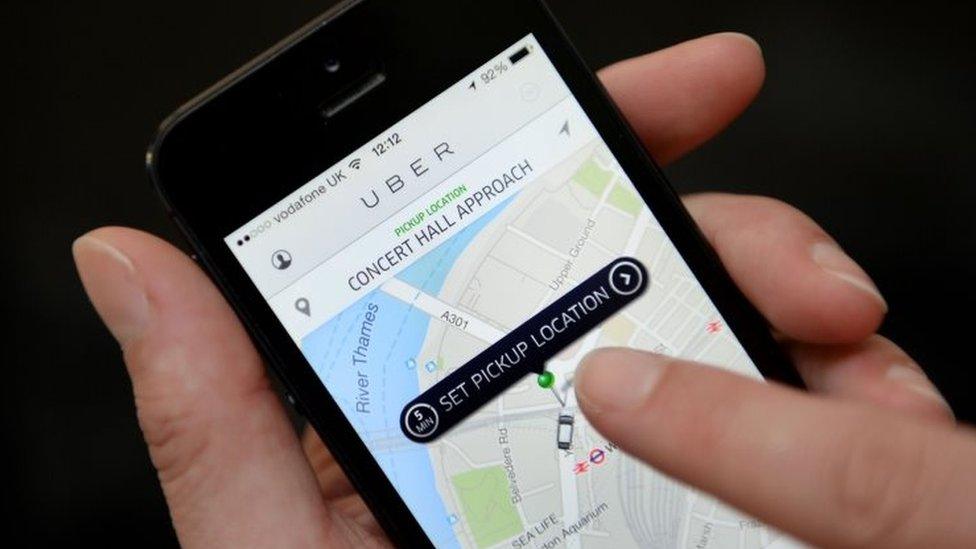Uber to deploy self-driving cars in Pittsburgh
- Published
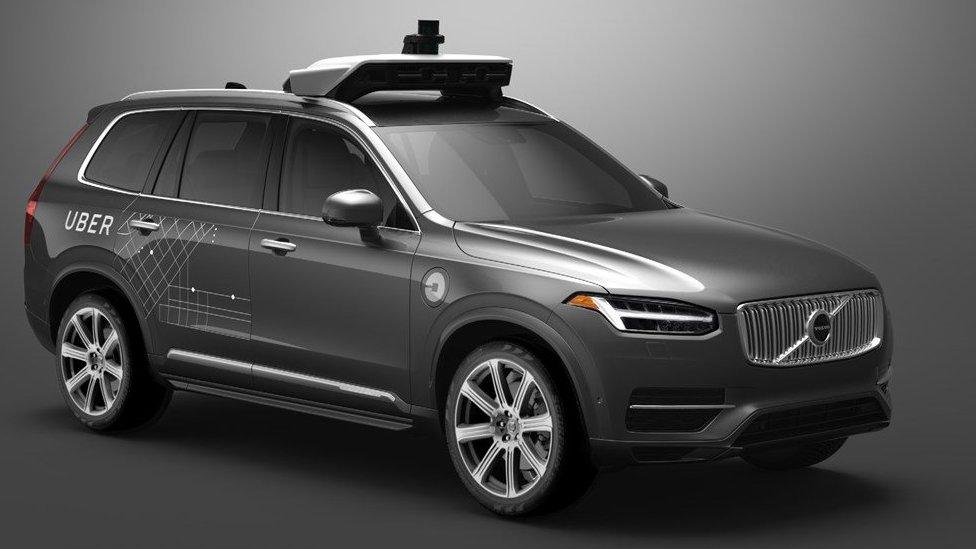
Uber plans to pick up passengers in specially modified Volvo self-driving cars
The ride-sharing firm Uber will, for the first time, allow users to hail self-driving cars within a fortnight, the company has confirmed.
Uber said the launch would take place in Pittsburgh, Pennsylvania. It added that it was teaming up with Volvo, external.
At first, the vehicles will be supervised by a driver, who can take control if necessary, and an observer, Bloomberg, external reported.
The firm first revealed plans to replace human drivers two years ago, external.
More than one million people drive vehicles linked to its app, but are not directly employed by the company.
A spokeswoman for the firm told the BBC: "Starting later this month, Uber will allow customers in downtown Pittsburgh to summon self-driving cars from their phones, crossing an important milestone that no automotive or technology company has yet achieved.
"In Pittsburgh, customers will request cars the normal way, via Uber's app, and will be paired with a driverless car at random. Trips will be free for the time being, rather than the standard local rate of $1.30 [£0.98] per mile."
She added that Volvo had already sent a small number of sensor-equipped XC90 sports utility vehicles (SUVs) to Uber, which would be used in the initial trials. The carmaker intends to have delivered 100 such cars to its partner by the end of the year.
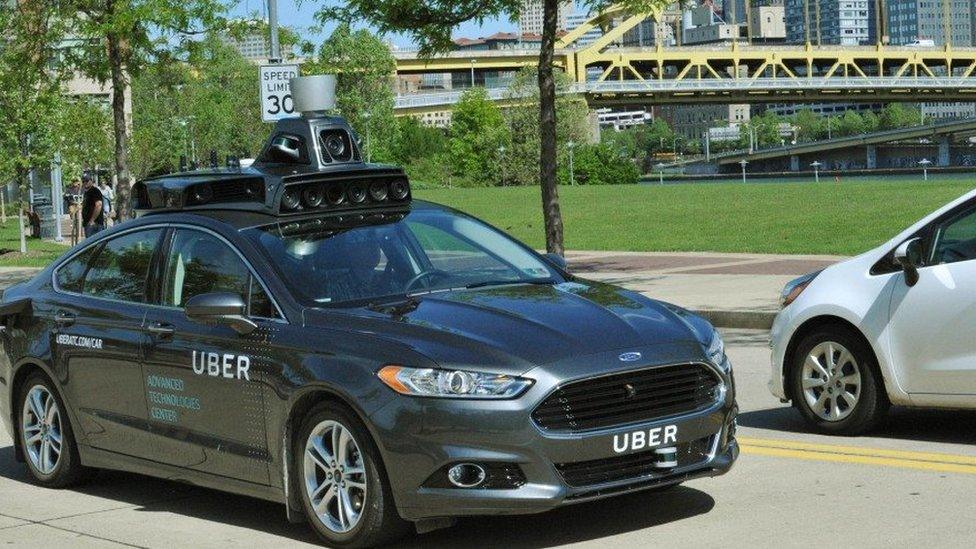
Uber began using Ford Fusion cars to test its self-driving technologies in Pittsburgh earlier this year
Uber had previously used modified Ford Fusions to test its self-driving tech, external.
Volvo collaboration
Volvo has confirmed it is taking part in a "joint project" between Uber and the carmaker.
"Both Uber and Volvo will use the same base vehicle for the next stage of their own autonomous car strategies," the firm said.
Richard Westcott reports on advances being made in driverless car technology
"This will involve Uber adding its own self-developed autonomous driving systems to the Volvo base vehicle."
Engineers from both companies would collaborate on the project, the firm added.
"This alliance places Volvo at the heart of the current technological revolution in the automotive industry," said Hakan Samuelsson, president and chief executive of Volvo.
The Bloomberg story notes that the Volvo deal will not be an exclusive one and that Uber plans to work with other carmakers.
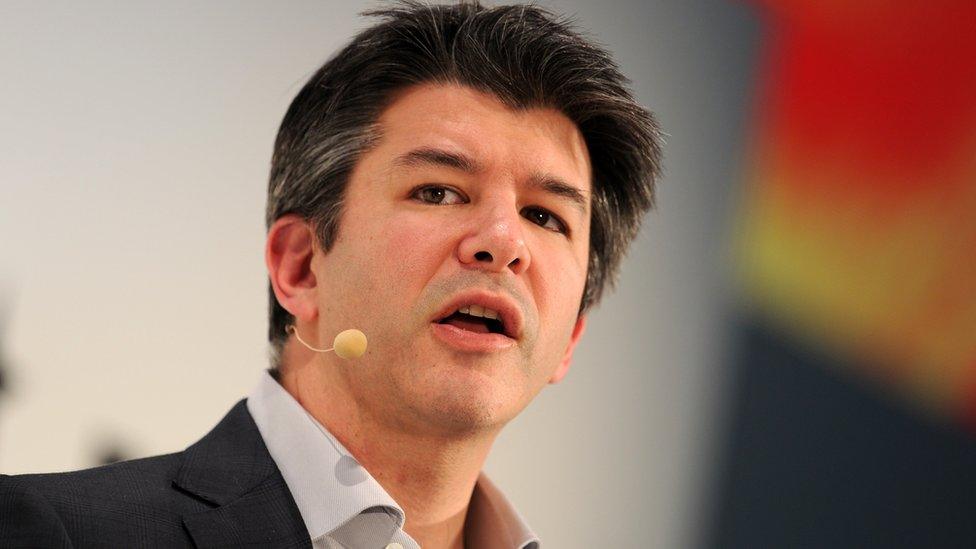
Uber chief executive Travis Kalanick has been planning a move to self-driving cars for some time

Analysis: Rory Cellan-Jones, technology correspondent
Uber's hard-charging founder Travis Kalanick has been outlining a vision of a self-driving fleet for some years - but it always sounded like a long-term vision akin to Elon Musk's plan for a settlement on Mars.
Indeed, two years ago the company's operations director Ryan Graves told me that focussing on self-driving cars was a "fool's errand" in the short term and that nobody would be getting in one in the next few years.
So, the news that self-driving Ubers will be available to customers in Pittsburgh later this month comes as a huge surprise.
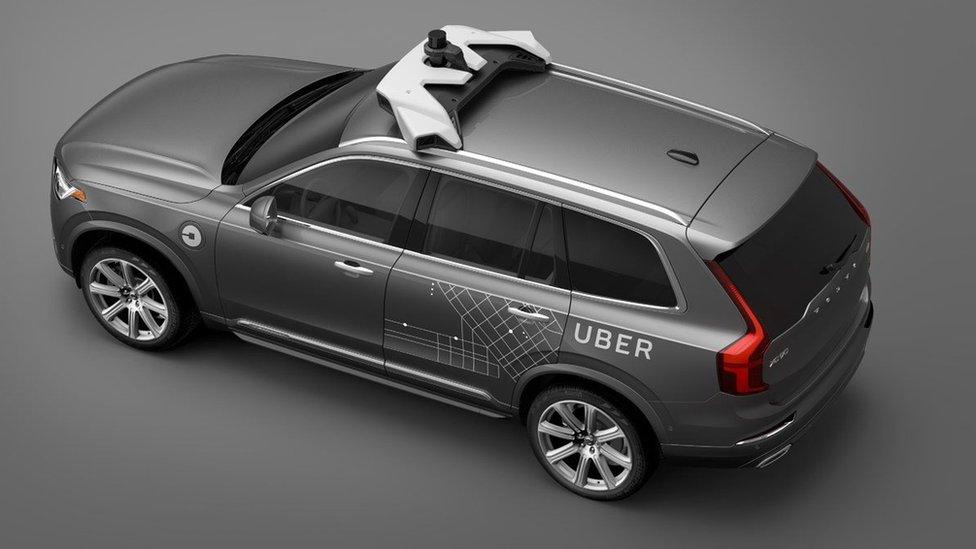
Volvo and Uber have pledged $300m to their self-driving project
It will be a wake-up call to Google - which has done so much work in this field but has yet to launch any kind of commercial service - and to Mr Musk's Tesla, currently battling adverse publicity over the reliability of its Autopilot function.
It is also a measure of just how much money Uber has invested in its automated driving research programme - but having raised over $10 billion (£7.6bn) from backers, the company has plenty of financial firepower at its disposal.
One caveat however - the "self-driving" Volvos picking up Uber users will still have a human in the driving seat as a supervisor. Even if Uber was confident enough in the technology to dispense with a human, neither Pittsburgh nor any other city is ready to adapt its regulations to allow completely autonomous driving.
And that means that Uber's latest coup is an impressive piece of marketing for its vision of the future of transport, but will prove a very expensive way of ferrying people around for some years to come.

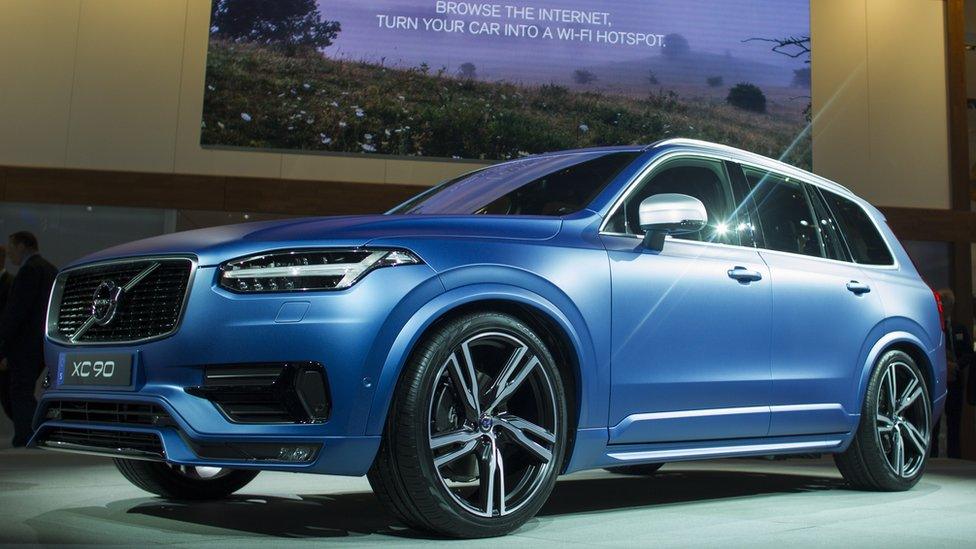
Volvo's XC90 self-driving vehicles have been modified for self-driving in other projects already
Some of Uber's know-how in the field of self-driving vehicles has come via its agreement to purchase Otto, a start-up founded by former Google employees to develop driverless trucks.
Otto was co-founded by Anthony Levandowski, whose previous start-up, 510 Systems, was bought by Google when it began its own self-driving vehicles project.
'Good step'
Volvo has already been testing self-driving versions of the same vehicle in Sweden, external as part of its "Drive Me" project, said Alan Stevens at the UK's Transport Research Laboratory (TRL) and the Institution of Engineering and Technology (IET).
The firm has also trialled the vehicle in Australia, external and plans to do so in London next year.
"I think it works well and I think it's a good small step to be taking," Mr Stevens told the BBC.
- Published17 August 2016
- Published7 June 2016
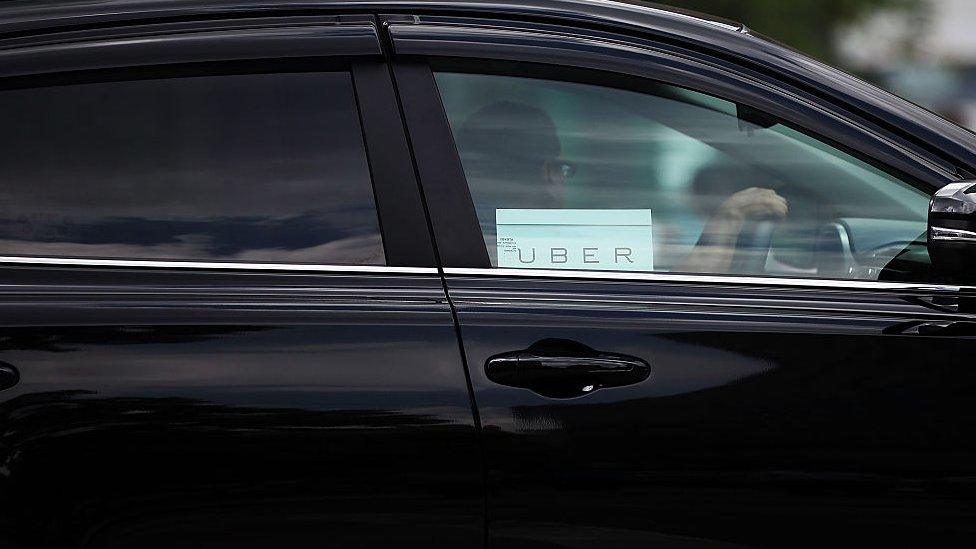
- Published20 January 2016
